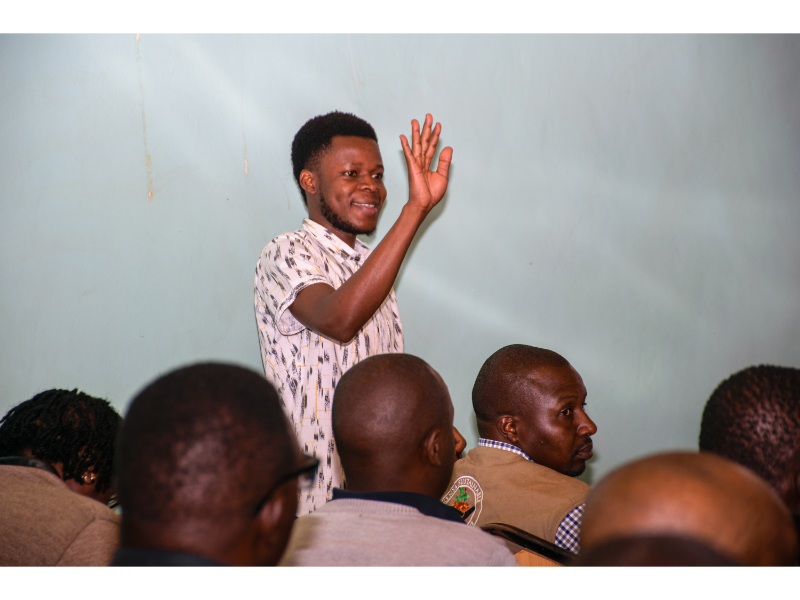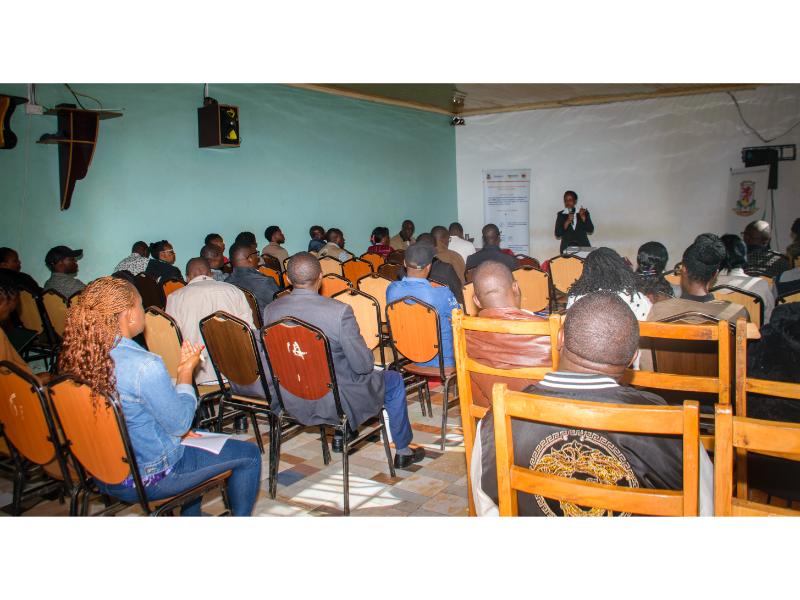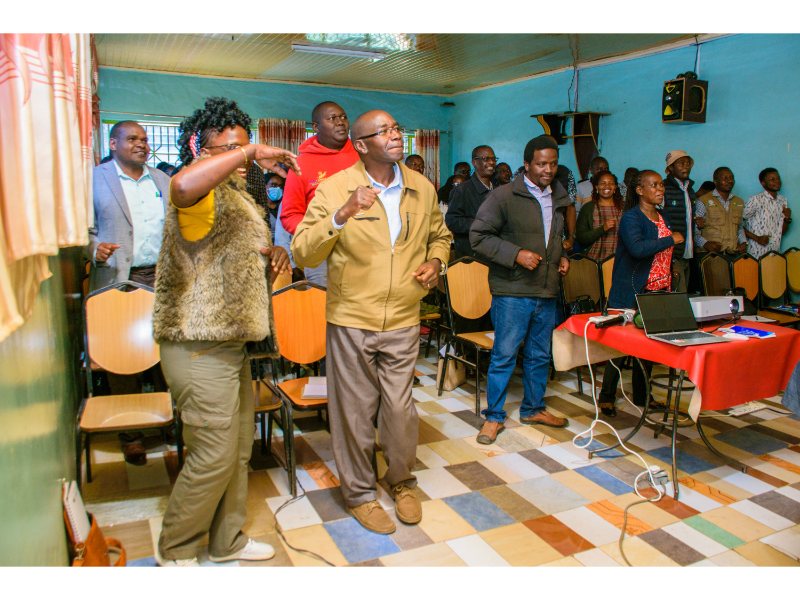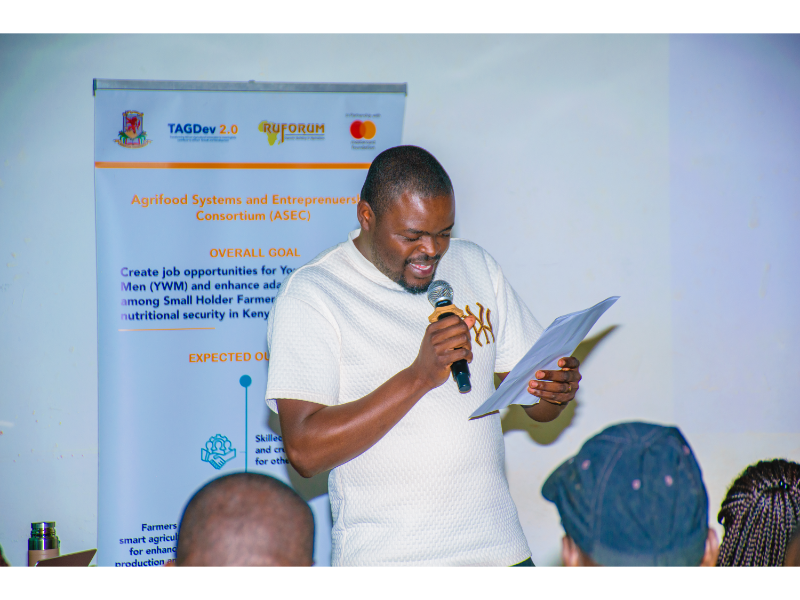TAGDev 2.0 program, Egerton University hosted a one-day workshop on June 6 at Naff Hotel Egerton, bringing together 61 sub-county & ward agricultural officers and agrovet dealers from across Nakuru County. This intensive training equipped the officers with practical tools and strategies to champion climate-smart, inclusive, and market-responsive farming practices to farmers across the county.
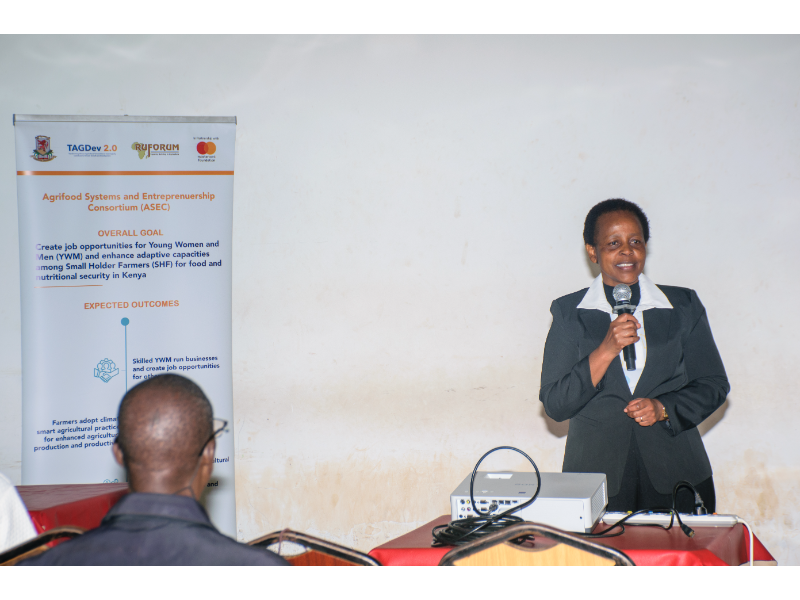
In his opening remarks, Prof. Benard Aduda, the DVC Academic Research and Extension Egerton University, urged the officers to pursue lifelong learning, extend their efforts beyond formal duties, and share new insights to bolster nutrition and food security nationwide. Prof. Nancy Mungai, the TAGDev 2.0 Program Coordinator, in her welcoming remarks posed a rhetorical question, “What have you done with what you have?” In answering this question, she said that transformation in the agricultural sector is achievable beginning at the individual level with extension officers leading the way by providing effective training and support for farmers. She noted that the TAGDev 2.0 training for extension officers was critical for capacity building for the officers to improve their effectiveness in delivering climate-smart agricultural practices in ways that are accessible, inclusive and understandable to farmers.

Virginia Njuguna, Associate Program Officer TAGDev2.0 Program, introduced the TAGDev 2.0 and ASEC initiatives. The program, through training and capacity building, aims to facilitate farmers to adopt climate smart agricultural practices for enhanced agricultural production and productivity to boost food and nutritional security in the country. The program also skills young women and men to create youth employment pathways by forging partnerships among universities, agribusinesses, and smallholder farmers.
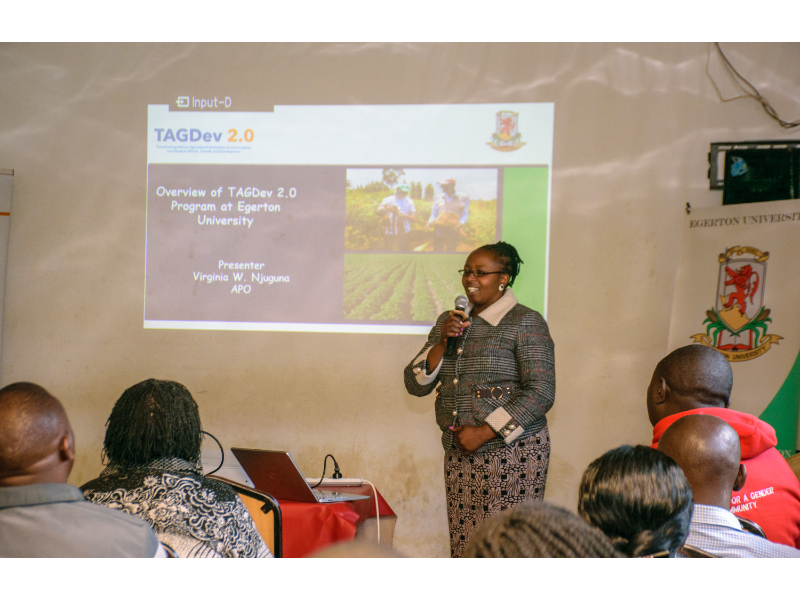
Dr. Mary Mathenge’s presentation focused on the vital role Agricultural policy in agricultural development and that the officers were central in bridging “the gap between policy, scientific evidence and farmer realities” in the field by translating data and research into practical guidance for farmers as well as providing feedback loops to policymakers and researchers. Since the officers provide training, information, and other support services for farmers while acting as intermediaries between local realities and national strategies, they are the “advocates who can push for responsive and inclusive strategies” to implement and better the existing policies to improve agricultural productivity.
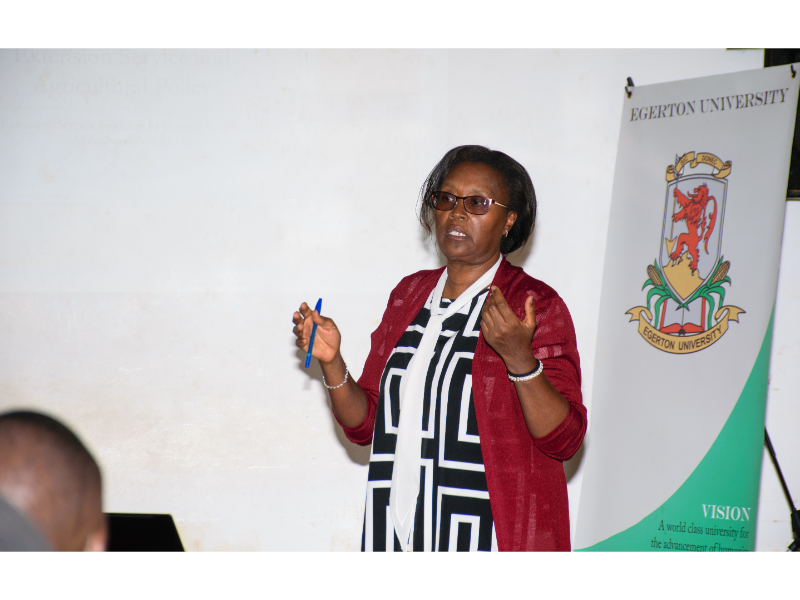
In an interactive mapping exercise, Mr. Simon Mutonga, led the officers in brainstorming the bottlenecks – such as delays, miscommunication, and language gaps – that hamper their effective engagement with farmers, researchers, and agrovets. He noted that with improved communication and engagement skills, the extension officers to can effectively support and provide timely feedback to smallholder farmers in adopting sustainable and climate-resilient agricultural solutions.




Mr. Henry Chemjor presented on NPCK Viazi Soko, a digital platform that connects farmers to market places, weather forecasts, and agronomic advice ensuring that they will receive certified potato seeds and quality fertilizer and agrochemicals. He urged the officers to familiarize themselves with digital technologies and integrate these tools into their daily work so as to reach a wider audience especially the young women and men who rely on digital spaces for their information.
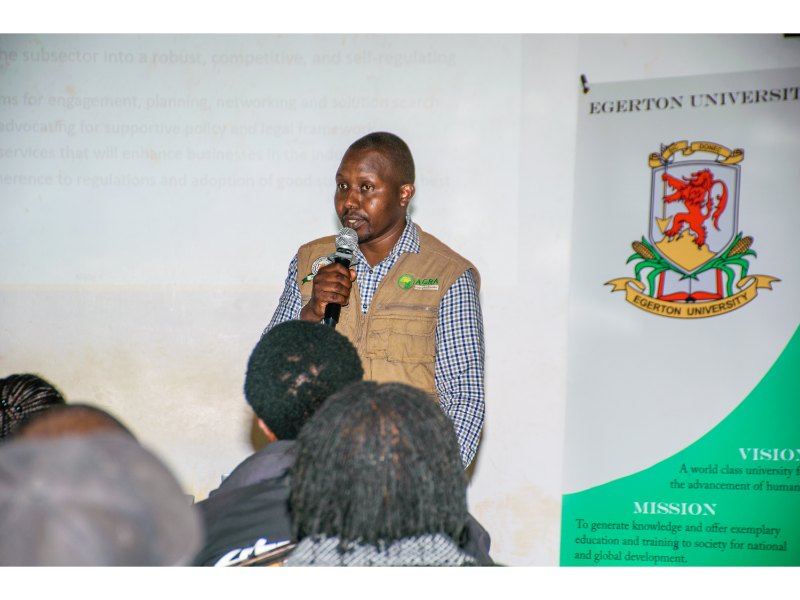
Dr. Susan Njogu urged officers to recognize women’s unique barriers, like limited land rights and time constraints and to design outreach that ensures equal access to training, credit, and inputs. “True transformation in agriculture must be inclusive,” she said. “It begins with acknowledging and addressing gender disparities.”
TAGDev 2.0 (2023–2033) will build on these successes, focusing on climate-smart agriculture, gender-inclusive practices, and youth employment. By strengthening institutions, influencing policy, and empowering extension officers with cutting-edge tools, the program aims at strengthening institutions to serve the communities by empowering young women and men and their institutions to drive an inclusive, equitable, climate resilient and transformative agriculture and Agri-Food systems.
By Were Bumbe

